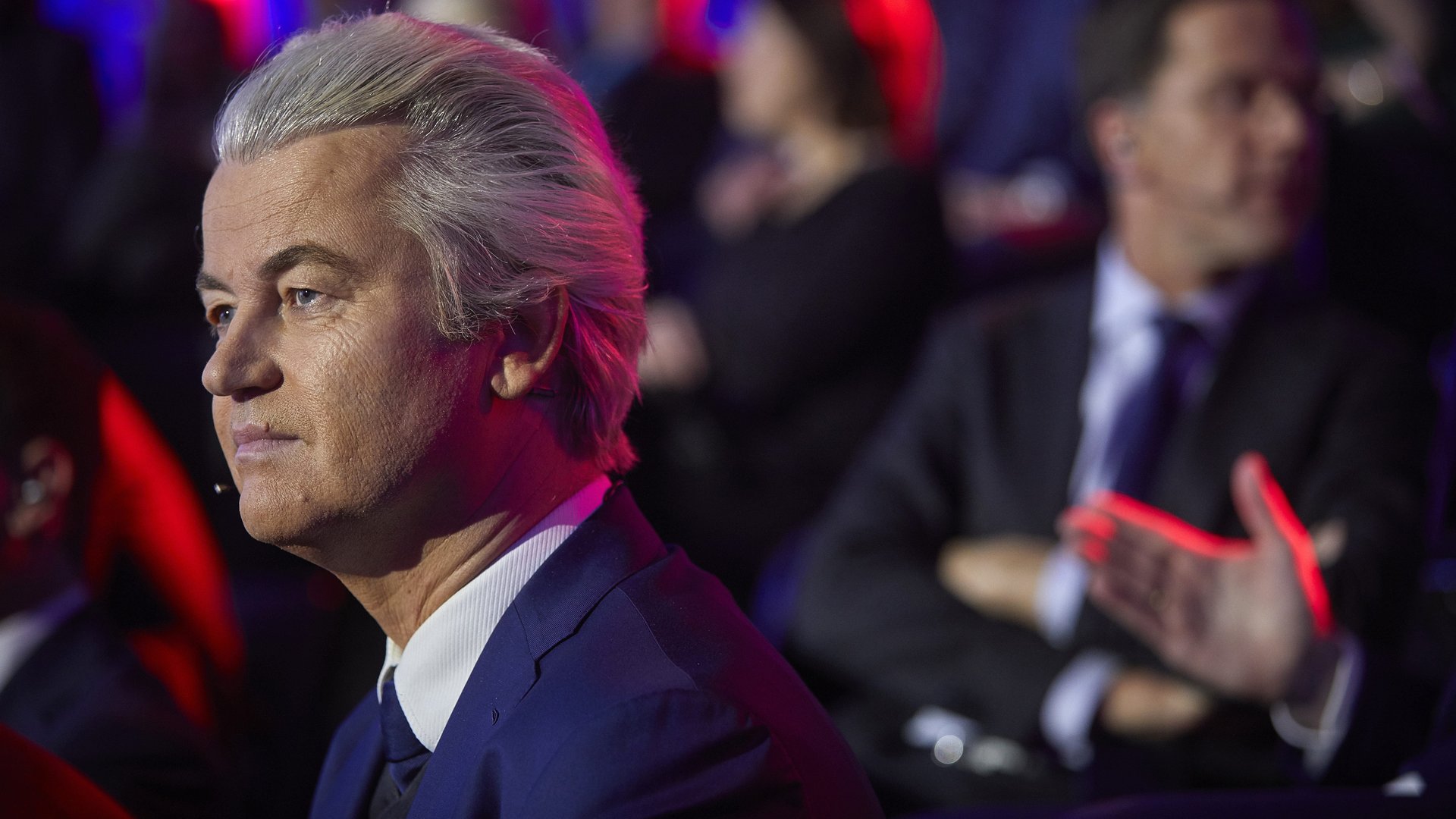Exit polls show voters in the Netherlands have rejected Geert Wilders, the Dutch Donald Trump
Maybe the “Trump effect” in Europe is weaker than it seems. After a noisy campaign that grabbed international headlines, Dutch far-right leader Geert Wilders fell far short of his pre-electoral hopes on March 15, according to exit polls.


Maybe the “Trump effect” in Europe is weaker than it seems. After a noisy campaign that grabbed international headlines, Dutch far-right leader Geert Wilders fell far short of his pre-electoral hopes on March 15, according to exit polls.
Center-right prime minister Mark Rutte led with 31 seats in the 150-seat parliament, according to early polls. Wilders’ Party for Freedom (PVV) had 19 seats—tied for second place with two other parties, but well behind the 24 seats expected. And with 12.6% of the vote, he was only 2.5 percentage points up on his 2012 result, according to an Ipsos exit poll. Turnout was at a 31-year high of 82%.
The result calms fears that the Netherlands would be the next to fall to a hard-right populist cascade that has crashed through Britain and America. Wilders has been widely compared to US president Donald Trump for his Islamophobia, his bombastic tweeting, and his extraordinary hair. However, if anything, it was the far left that had the happiest night, with the Green party likely to quadruple its seats to 16.
Wilders reacted with defiance, tweeting: “We have won seats! That’s the first victory! I’m not done with Rutte yet!” However, one journalist suggested things weren’t as joyous as Wilders claimed:
If the official counts reflect the exit polls, Rutte will have to get to work on building a coalition to reach 76 seats—a process that has taken an average of three months since 1946.